Ludwig van Beethoven
Story
Beethoven was born in Bonn, Germany, to Johann van Beethoven (1740-1792), of Flemish origins, and Magdalena Keverich van Beethoven (1744-1787). Until relatively recently 16 December was shown in many reference works as Beethoven’s ‘date of birth’, since we know he was baptised on 17 December and children at that time were generally baptised the day after their birth. However modern scholarship declines to rely on such assumptions.
Beethoven’s first music teacher was his father, who worked as a musician in the Electoral court at Bonn, but was also an alcoholic who beat him and unsuccessfully attempted to exhibit him as a child prodigy. However, Beethoven’s talent was soon noticed by others. He was given instruction and employment by Christian Gottlob Neefe, as well as financial sponsorship by the Prince-Elector. Beethoven’s mother died when he was 17, and for several years he was responsible for raising his two younger brothers.
Beethoven moved to Vienna in 1792, where he studied with Joseph Haydn and other teachers. He quickly established a reputation as a piano virtuoso, and more slowly as a composer. He settled into the career pattern he would follow for the remainder of his life: rather than working for the church or a noble court (as most composers before him had done), he was a freelancer, supporting himself with public performances, sales of his works, and stipends from noblemen who recognized his ability.
Beethoven’s career as a composer is usually divided into Early, Middle, and Late periods.
In the Early period, he is seen as emulating his great predecessors Haydn and Mozart, at the same time exploring new directions and gradually expanding the scope and ambition of his work. Some important pieces from the Early period are the first and second symphonies, the first six string quartets, the first two piano concertos, and about a dozen piano sonatas, including the famous ‘Pathétique’.
The Middle period began shortly after Beethoven’s personal crisis centering around deafness, and is noted for large-scale works expressing heroism and struggle; these include many of the most famous works of classical music. The Middle period works include six symphonies (Nos. 3 – 8), the last three piano concertos and his only violin concerto, six string quartets (Nos. 7 – 11), many piano sonatas (including the ‘Moonlight’, ‘Waldstein’, and ‘Appassionata’), and Beethoven’s only opera, Fidelio.
Beethoven’s Late period began around 1816 and lasted until Beethoven ceased to compose in 1826. The late works are greatly admired for their intellectual depth and their intense, highly personal expression. They include the Ninth Symphony (the ‘Choral’), the Missa Solemnis, the last six string quartets and the last five piano sonatas.
Beethoven’s personal life was troubled. Around age 28 he started to become deaf, a calamity which led him for some time to contemplate suicide. He was attracted to unattainable (married or aristocratic) women, whom he idealized; he never married. A period of low productivity from about 1812 to 1816 is thought by some scholars to have been the result of depression, resulting from Beethoven’s realization that he would never marry. Beethoven quarreled, often bitterly, with his relatives and others, and frequently behaved badly to other people. He moved often from dwelling to dwelling, and had strange personal habits such as wearing filthy clothing while washing compulsively. He often had financial troubles.
It is common for listeners to perceive an echo of Beethoven’s life in his music, which often depicts struggle followed by triumph. This description is often applied to Beethoven’s creation of masterpieces in the face of his severe personal difficulties.
Beethoven was often in poor health, and in 1826 his health took a drastic turn for the worse. His death in the following year is usually attributed to liver disease.
Details
- Composer
- Ludwig van Beethoven
- Albums
- 55
- Tracks
- 1108
55 albums
-

Ludwig van Beethoven
100 Best of Beethoven
-
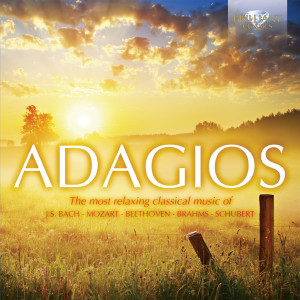
Antonín Dvořák, Maurice Ravel and 12 others
Adagios
-
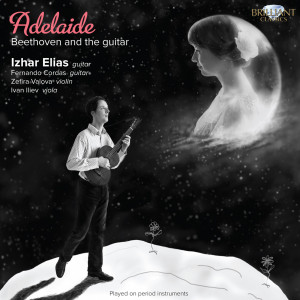
Ludwig van Beethoven, Anton Diabelli and 5 others
Adelaide: Beethoven and the Guitar
-
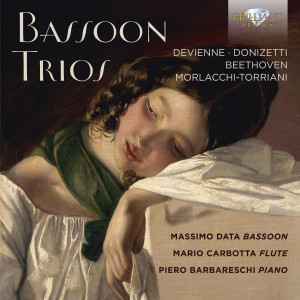
Ludwig van Beethoven, François Devienne and 2 others
Bassoon Trios
-

Edward Elgar, Georges Bizet and 27 others
Beautiful Classical Melodies
-

Ludwig van Beethoven
Beethoven Complete Symphonies
-
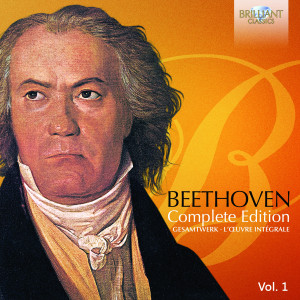
Ludwig van Beethoven
Beethoven Edition, Vol. 1
-

Ludwig van Beethoven
Beethoven Hammerklavier Sonata, Op. 106, Piano Sonata, Op. 2 No. 3
-

Ludwig van Beethoven and César Auguste Franck
Beethoven, Franck: Kreutzer Sonata, Sonata in A
-
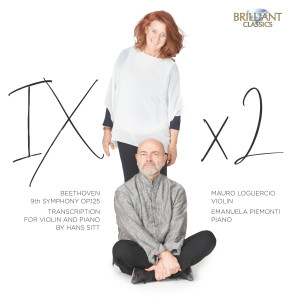
Ludwig van Beethoven
Beethoven: 9th Symphony, Op. 125, Transcription for Violin and Piano by Hans Sitt
-

Ludwig van Beethoven
Beethoven: Complete Cello Sonatas & Variations
-

Ludwig van Beethoven
Beethoven: Complete Chamber Music with Flute
-

Ludwig van Beethoven
Beethoven: Complete Piano Sonatas
-

Ludwig van Beethoven
Beethoven: Complete Piano Sonatas, Vol. 1
-

Ludwig van Beethoven
Beethoven: Complete Piano Trios
-

Ludwig van Beethoven
Beethoven: Complete Symphonies Transcribed for Piano by Liszt
-

Ludwig van Beethoven
Beethoven: Complete Violin Sonatas
-

Ludwig van Beethoven
Beethoven: Con alcune licenze
-
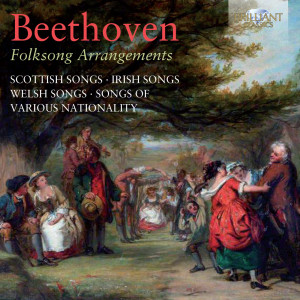
Ludwig van Beethoven
Beethoven: Folksong Arrangements
-

Ludwig van Beethoven
Beethoven: Lieder
-
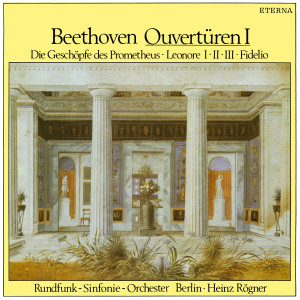
Ludwig van Beethoven
Beethoven: Overtures
-

Ludwig van Beethoven
Beethoven: String Quintets Complete
-

Ludwig van Beethoven
Beethoven: String Trio, Op. 3, Serenade, Op. 8
-
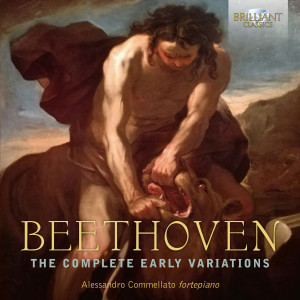
Ludwig van Beethoven
Beethoven: The Complete Early Variations
-

Ludwig van Beethoven
Beethoven: Triple Concerto & Piano Concerto No.0
-

Johannes Brahms and Ludwig van Beethoven
Brahms: Piano Sonata, Op. 1 & Beethoven: Hammerklavier Sonata
-

Johann Sebastian Bach, Wolfgang Amadeus Mozart and 17 others
Classical Piano Music
-
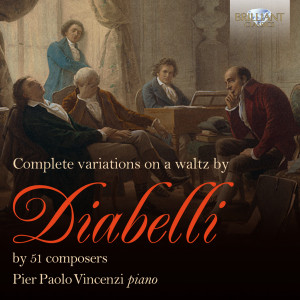
Franz Schubert, Johann Nepomuk Hummel and 50 others
Complete Variations on a Waltz by Diabelli
-

Edward Elgar, Camille Saint-Saëns and 20 others
Flauto d'Amore
-

Claude Debussy, Ludwig van Beethoven and 2 others
Flavours: Music for Cello and Piano
-

Piotr Ilyich Tchaikovsky, Claude Debussy and 2 others
Für Elise. Piano Music for Children
-

Claude Debussy, Ludwig van Beethoven and 4 others
Klára Würtz: Celebration Vol. 3
-

Maurice Ravel, Piotr Ilyich Tchaikovsky and 11 others
Klára Würtz: Celebration Vol. 5
-

Claude Debussy, Ludwig van Beethoven and 2 others
Klaviermusik für Kinder: Für Elise
-
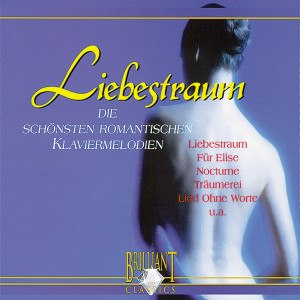
Johannes Brahms, Franz Schubert and 7 others
Liebestraum: Die schönsten romantischen Klaviermelodien
-

Piotr Ilyich Tchaikovsky, Wolfgang Amadeus Mozart and 10 others
Liebestraum: Romantic Piano Melodies
-

Johannes Brahms, Franz Schubert and 7 others
Liebestraum: Romantic Piano Music
-

Wolfgang Amadeus Mozart, Nikolai Medtner and 2 others
Mozart: Complete Divertimenti & Serenades
-
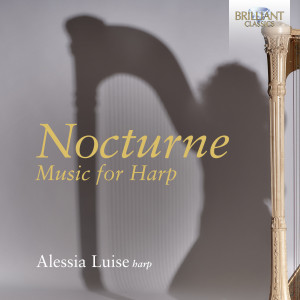
Johannes Brahms, Claude Debussy and 4 others
Nocturne, Music for Harp
-
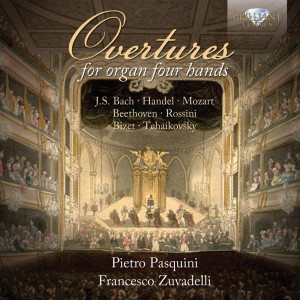
George Frideric Handel, Georges Bizet and 5 others
Overtures for Organ Four Hands
-

Johann Nepomuk Hummel, Ludwig van Beethoven and 3 others
Paisiello in Vienna
-

Piotr Ilyich Tchaikovsky, Wolfgang Amadeus Mozart and 4 others
Piano Music for Children: Kinderszenen, Children's Corner, Für Elise, Rondo alla turca
-

Ludwig van Beethoven and Ferdinand Rebay
Rebay: Complete Music for Clarinet & Guitar
-

Max Reger and Ludwig van Beethoven
Reger, Beethoven: Serenades for Flute, Violin and Viola
-

Antonín Dvořák, Camille Saint-Saëns and 3 others
Romances for Violin by Beethoven, Saint-Saëns, Dvorak, Bruch, Svendsen
-

Johann Sebastian Bach, Wolfgang Amadeus Mozart and 6 others
Sergio Fiorentino: The Legacy, Vol. 3
-
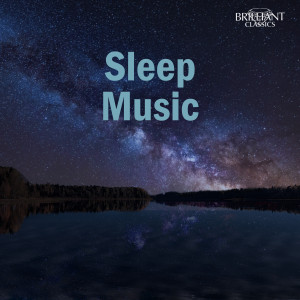
Antonín Dvořák, Maurice Ravel and 16 others
Sleep Music
-

George Frideric Handel, Richard Wagner and 15 others
Sunday Morning Classics
-

Camille Saint-Saëns, Gabriel Fauré and 37 others
The Romantic Age, 500 Years of Classical Music
-

Antonín Dvořák, Camille Saint-Saëns and 13 others
The Romantic Cello
-

Camille Saint-Saëns, Gabriel Fauré and 15 others
Top 30 Favourite Classical Chillout Tunes
-

Camille Saint-Saëns, Gabriel Fauré and 19 others
Top 40 Favourite Classical Melodies
-

Antonín Dvořák, Camille Saint-Saëns and 14 others
Top 50 Most Popular Classical Cello
-

Maurice Ravel, Piotr Ilyich Tchaikovsky and 12 others
Top 50 Most Popular Classical Piano
-

Piotr Ilyich Tchaikovsky, Wolfgang Amadeus Mozart and 8 others
Top 50 Most Popular Classics for Kids
